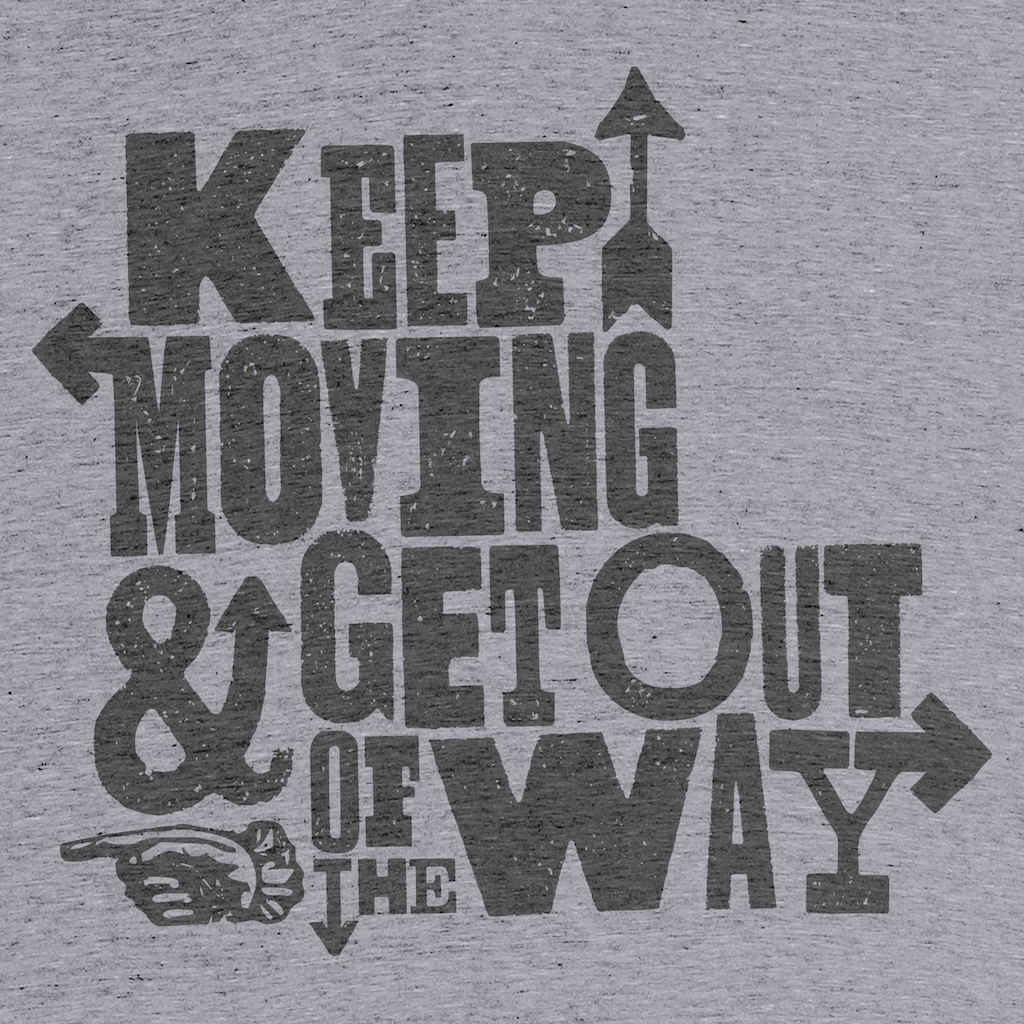Thought Technology

I was first introduced to the phrase “thought technology” by Merlin Mann and John Roderick on their long-running podcast Roderick on the Line. A thought technology isn’t quite the same as a belief or a philosophy, and it’s more than just a simple lesson. “Keep moving & get out of the way” is an example from their first ever episode about how to best traverse a city. Thought technologies like this one are ways of thinking about particular problems or situations. They’re technologies in the sense that, like a hammer or a pencil, they can be used to solve problems. Sometimes having the right thought at the right time is all you need to move forward, break through, or get unstuck.
Architects and engineers may be familiar with this concept as “design patterns”: reusable solutions that can be applied repeatedly in the creation of complex systems like buildings or computer programs. It’s not a coincidence that Merlin has also given a talk at Macworld in 2009 about design patterns, because the two concepts do share a lot of DNA. But thought technologies, as I understand them, are often more broadly applicable than design patterns, and can even cross disciplines and mediums.
Before I even knew the term, I had heard about a deck of cards called Oblique Strategies, created by Brian Eno and Peter Schmidt in 1975. The original deck contained 113 cards, each of which gave a suggestion of how to get unblocked on creative problems by encouraging lateral thinking. For example, “Try faking it!” or “Ask your body”. While at first glance these may seem like nothing more than empty aphorisms or clichés, upon deeper inspection, they’re actually hard-won lessons in creativity, distilled into ink and letter-pressed onto paper. They’re little verbal gadgets for your brain to help you be a better artist or musician or creator.
If you’re a fan or practitioner of improvisational theatre, you have likely heard of the thought technology of “Yes and…”, but improvisers have a huge collection of these that they’ve built over decades to understand and improve their art form. Sometimes they’re referred to as “the rules”. But one of the things I love about the word technology in this context specifically is that it is value-neutral. Just like floppy disks or CD-ROMs, thought technologies can become outdated, outmoded, and be replaced by better, more useful tools. There are no good or bad technologies, only better and worse uses of them.
In fact, in an incredibly meta sense, even having an awareness of the concept of thought technologies is a thought technology in itself. Once you become aware of the various mental patterns and cognitive strategies you regularly employ to interact with the world, it becomes much easier to name, record, and consciously employ them. The branch of psychology interested in Cognitive Behavioral Therapy even uses this to help treat patients with mental illness and other cognitive distortions. Once you have built up this personal library of thought technologies you use, you can then examine, improve, update, and replace them as you learn new things about yourself, your work, and the spaces you operate in.
Some of the smartest people I know have recently become invested in building bespoke systems for exploring their own thought technologies over time. Andy Matushack’s working notes, the rapidly-expanding Roam Research and Obsidian communities, Tiago Forte and Nick Milo’s respective online courses on networked thought, and the larger movement toward personal knowledge management systems all point to the idea that as knowledge workers and creative people, it’s much easier to make breakthroughs in our work when we can look at what’s going on in our brain in a more concrete form and operate on those mental models more directly. I’ve even dipped my own toe in the water by publishing 30 of my own thought technologies on my 30th birthday last year.
Giving someone a new way to think about the world is a gift. As someone who’s always trying to learn and grow, I try to treat these gifts with the same respect I have for the physical technology I carry with me in my pocket. Brian and Peter gave musicians hundreds of these gifts in a deck of cards, improvisers hand them down through books and classes, and Merlin and John broadcast them out weekly in an RSS feed. Thanks to that show, I’ve gained a way to think about thinking, and if you’ve never considered the apps that run on your own mental operating system before today, maybe you have too. Think different, I suppose.